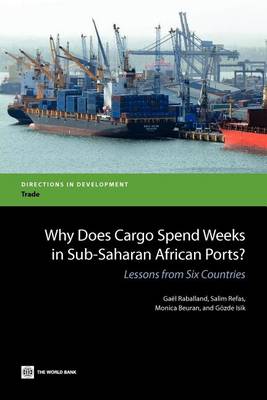This book argues that long dwell time in Sub-Saharan African (SSA) ports is not exclusively the responsibility of customs as usually believed. The private sector (terminal operator, customs broker, owner of container depots, and even importers) has not necessarily an interest in reducing time spent in ports. The solution to decrease dwell time in these ports relies mainly on the challenging task of breaking the private sector's collusion and equilibrium between public authorities, logistics operators, and some importers. This book was written in the context of increasing investment by the international community in projects that promote trade facilitation and improvement in logistics in the developing world, including in ports, mainly based on the assumption that in ports, customs (and other controlling agencies) have to be mainly blamed for abnormal delays. However, customs responsibility (especially for months-long delays) may not be as important as usually believed and therefore requires in-depth data collection and analysis which has been lacking so far. The authors disentangle cargo delays in ports with comprehensive data collection in six ports in SSA and firms' surveys in five countries. Based on this data collection, they find that cargo dwell time in ports in SSA (except Durban) are very long compared to large ports in Asia, Europe, and Latin America. In these ports, there is collusion between controlling agencies, port authorities, private terminal operators, logistics operators (freight forwarders) and large shippers at the expense of consumers. The market structure of the private sector explains the hysteresis of cargo dwell time. Finally, the structure of the SSA economies with few export-oriented producers (and the dominance of traditional import/export traders) reinforces the status quo since they are usually not organized to be competitive worldwide.
- ISBN10 1280486694
- ISBN13 9781280486692
- Publish Date 25 February 2013 (first published 30 April 2012)
- Publish Status Active
- Out of Print 14 May 2014
- Publish Country US
- Imprint World Bank Publications
- Edition New ed.
- Format eBook
- Language English
